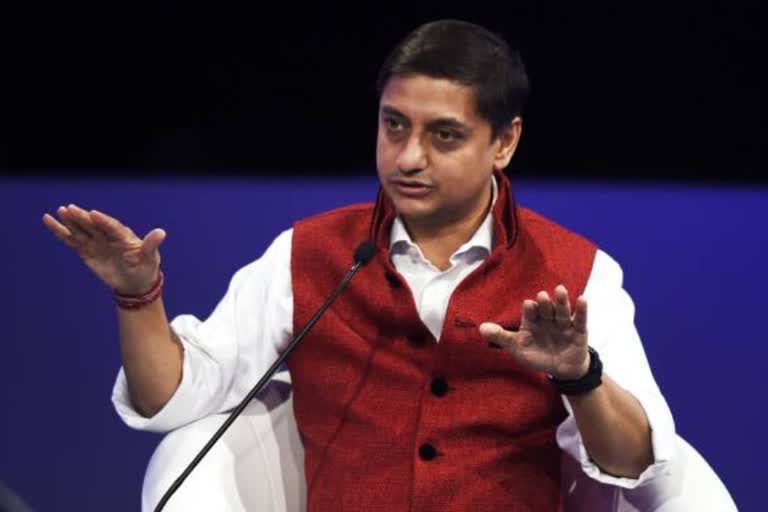New Delhi: Poor quality of enforcement of contracts and judicial process have been the single biggest constraint to the country’s economic growth, said the Principal Economic Advisor in the ministry of finance, adding that it's high time for a national debate on the issue of legal reforms in the country.
Addressing a programme organised by the industry body Confederation of Indian Industries (CII), Sanjeev Sanyal, the principal economic advisor in the ministry of finance said the problem was not new.
“The single biggest constraint to India's economic growth is actually the poor quality of contract enforcement and legal resolution and it's not a new thing,” Sanjeev Sanyal Thursday said in CII’s Financial Market Summit, which was held through a video link.
“I was writing about it 15 years ago, and every second time I do an interview like this or write something, I mention enforcement of contract and judicial process,” Sanyal told the audience.
Grinding slowly
According to the National Judicial Data Grid (NJDG), nearly 3.5 crore (35 million) civil and criminal cases were pending in the country’s District and Taluka courts, out of which over 94 lakh (9.4 million), nearly 27% of the total pending cases, were civil matters.
Similarly, over 52 lakh (5.2 million) cases were pending in the country’s High Courts and as on October 1 this year, over 63,000 cases were pending before the Supreme Court.
Financial disputes at courts
It is not just the sheer number of court cases that bog down the country’s over burdened judiciary which also have an adverse impact on the country's economic growth but many crucial policy decisions by the government such as allocation of radio waves for use by the country’s telecom companies, allocation of coal blocks, imposition of tax on Hutch-Vodafone deal have been agitated and settled by the top court.
Read more: Railways to give bonus equivalent to 78 day wages to 11.58 lakh non-gazetted employees
Several times, the courts reversed the policy decisions of the government with significant financial implications and also had an impact on the business climate in the country.
Recently, the Supreme Court asked the government to expeditiously implement its decision to waive the interest on interest on a certain category of loans that availed six-month loan moratorium announced by the RBI. In March this year, the Reserve Bank allowed banks and lenders to offer loan moratorium to those borrowers who were facing difficulty in servicing their loans due to the Covid-19 global pandemic.
However, a UP resident challenged the policy of charging interest on interest during the moratorium period in the Supreme Court which prompted the Union government to assure the top court that it would bear its financial burden, which has been estimated at around Rs 6,500 crores.
Need for national debate: Sanjeev Sanyal
Sanjeev Sanyal says the issue is important enough to have a national debate around it.
“Let's have a national debate on the need for legal system reforms. I don't think that as yet there is a national debate on this issue. Everybody cribs about it but we need a real debate around it,” he said.
“I'm quite sure that eventually the weight of voices push it through. After all, just because we had national debate on other issues things actually happened,” Sanyal added.
(Article by Krishnanand Tripathi)



